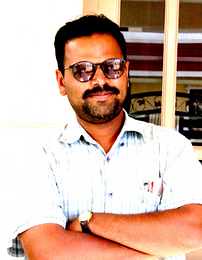NComputing : Getting more from less
In a country like India with its wide digital divide, a solution like sharing computer processing and computing capacities could make a big difference. Shonali Misra finds out more about NComputing.Operating a computer these days is as routine as writing in a notebook (not the laptop!) Though computer prices have declined over the years, it is still difficult for every average middle-class person to be able to afford one. In this scenario, when any individual or organisation has an affordable as well as efficient option of computing, cyberspace seems so much more accessible.
Turning complexity simple enters the NComputing solution. Founded in 2003 by a Korean engineer, Young Song, and German inventor, Klaus Maier, dedicating more than 12 years of applied research in multiuser computing, NComputing breaks the affordability and complexity barriers that have limited the PC from being deployed everywhere.
NComputing, Inc. (www.ncomputing.com) is a privately held software and hardware technology design and manufacturing company with offices in Australia, Canada, China, Germany, India, Korea, Poland, Russia, the United Kingdom, and the United States. Headquartered in Redwood City, CA, the company's patented technologies drastically lower costs, improve manageability and reduce energy consumption.
Explaining how the system works, Mr Raj Shah, Chief Marketing Officer, NComputers, says, "The NComputing system is based on the simple fact that today's PCs are so powerful that the vast majority of users only need a small fraction of the computing capacity. Most users only tap one to five percent of the more powerful PC's processing power. NComputing taps this unused capacity so that it can be simultaneously shared by 7 to 30 users at a time."
Each user's monitor, keyboard, and mouse are connected to a very small and highly reliable NComputing access device, which is then connected to the shared PC. This thus brings down the cost of infrastructure, installation, and maintenance.

In addition to lower initial costs, the NComputing solution also lowers ongoing support costs. For example, the NComputing access devices only use one watt of electricity—compared to 120 watts of electricity for a dedicated PC.
The 95 percent electricity reduction is especially critical in India where electricity rates are high with India facing a 70,000 MW power shortage along with power supply being unreliable, adds Shah. The lower power consumption also reduces the need for uninterruptible power supply (UPS) systems and inverters.
Finally, since fewer PCs need to be maintained, the support, maintenance and replacement costs are significantly lower. The additional bonus is an 80 percent reduction in e -waste.

How it works
With the NComputing solution, each user still has his/her own monitor, keyboard, mouse and speakers. However, instead of connecting directly to a PC, these peripherals connect to a small NComputing access terminal on their desk. The access terminals connect either directly (X Series) or over Ethernet (L Series) to the terminal services software using the high performance User eXtention Protocol (UXP).

Presence in India
With a two year presence in India already having delivered around 200 seats, the company plans to work with the central and state government bodies, Non-Government Organisations (NGOs) and school systems. Azim Premji Foundation, Jindal South-west (JSW) - Vijaynagar Steel Plant near Hospet, Apollo Hospitals in Bangalore, and RV Public Girls school, Bangalore, are a few of the local names who have opted for the simplified computer solution. Digital Waves (http://www.digitalwaves.in/) is the Bangalore distributor for NComputers.
Story









1 Comments:
A LINK TO Digital Waves Bangalore will be quite useful ;)
thanks for your useful post
sreeram
Post a Comment
<< Home